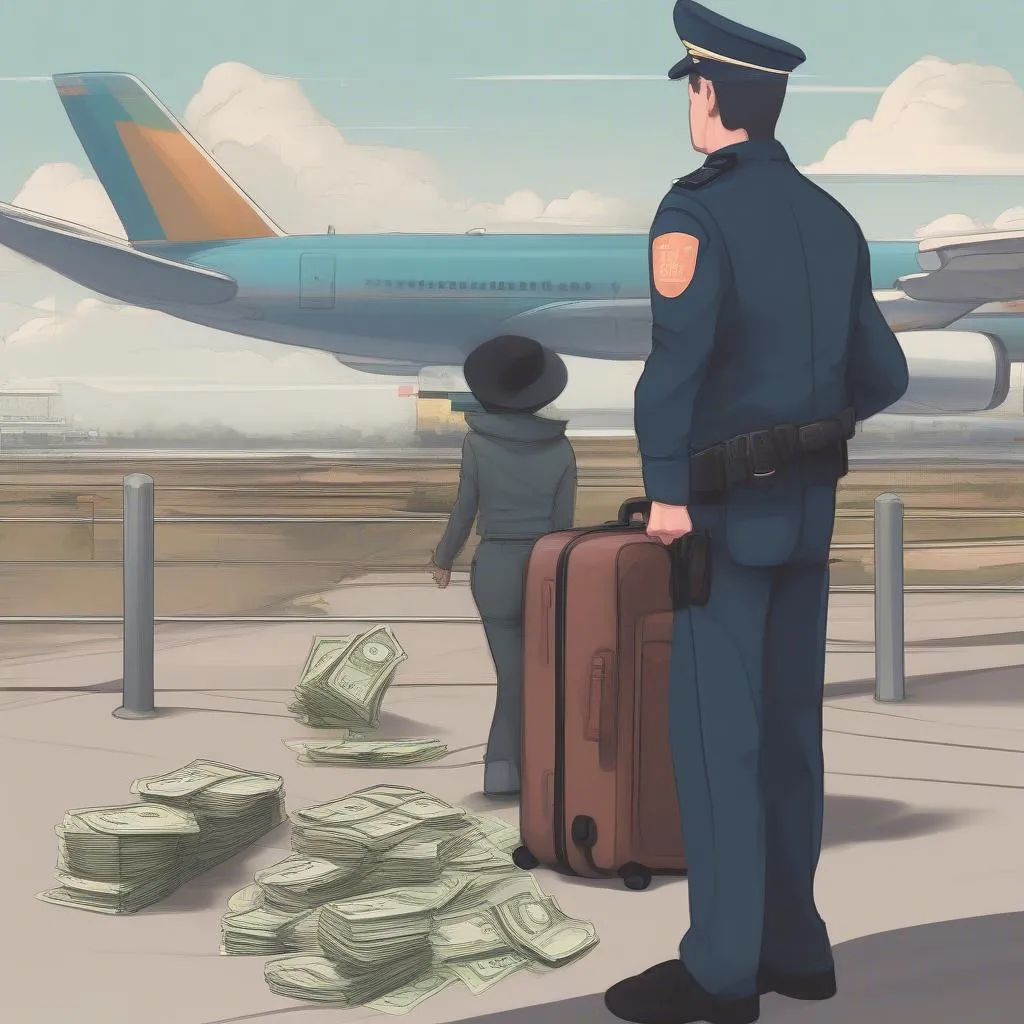Have you ever dreamt of strolling down the Champs-Élysées with a croissant in hand, the Eiffel Tower shimmering in the distance? Or perhaps you’ve envisioned yourself trekking through the ancient ruins of Machu Picchu, the crisp mountain air filling your lungs? Traveling the world is an incredible experience, but before you pack your bags and book that flight to your dream destination, there’s a crucial question to consider: how much money can you actually bring with you?
Deciphering the Cash Conundrum: It’s More Than Just Pocket Change
You might be surprised to learn there isn’t a simple, universal answer to the question of “how much money can I travel with?”. It’s a bit of a global puzzle with varying regulations depending on your destination. Let’s break it down:
Domestic Travel: Your Home Turf
When traveling within your own country, there’s typically no limit on how much cash you can carry. However, it’s always wise to be mindful of safety and practicality. Walking around with a suitcase full of cash isn’t exactly the safest or most convenient way to travel.
Expert Insight: “While there might not be legal restrictions on domestic cash, it’s prudent to consider alternatives like traveler’s checks or prepaid cards to minimize risk,” advises Amelia Parker, author of “Smart Travel Finance: Making the Most of Your Adventures”.
International Travel: Navigating the Global Maze
This is where things get a bit more complex. When crossing international borders, most countries have regulations regarding the amount of currency you can bring in or out.
- United States: You can bring up to $10,000 USD in cash without declaring it. However, carrying more than this amount isn’t illegal; you’ll just need to fill out a form called a FinCEN 105 at customs.
- European Union: Similar to the US, the EU has a limit of €10,000 (or equivalent) for undeclared cash.
- Other Countries: Limits and regulations vary widely. It’s crucial to research the specific rules of your destination country before you travel.
Pro Tip: Check the websites of your destination country’s embassy or consulate for the most up-to-date information on currency restrictions.
 currency-restrictions-travel
currency-restrictions-travel
Why the Fuss About Cash?
You might be wondering why countries even bother with these limits. It primarily boils down to preventing illegal activities like money laundering and tax evasion.
Planning Your Travel Budget: More Than Just Currency Limits
While understanding currency restrictions is vital, it’s only one piece of the financial puzzle when planning your trip. Here’s a broader look at managing your travel money:
1. Research, Research, Research!
Before you even book your flights, delve into the cost of living in your chosen destination. A luxurious vacation in Paris will undoubtedly require a larger budget than a backpacking adventure through Southeast Asia.
2. Embrace the Art of Budgeting:
Creating a realistic travel budget is key to avoiding financial stress during your trip. Factor in expenses like:
- Accommodation
- Transportation
- Food
- Activities
- Visas
- Travel insurance (Essential! Check out our guide on travel insurance here: [link to relevant article on travelcar.edu.vn])
3. Pack Your Financial Toolkit:
Don’t rely solely on cash. Diversify your travel funds with:
- Credit Cards: Opt for cards with no foreign transaction fees for international trips.
- Debit Cards: Inform your bank about your travel plans to avoid any unexpected card blocks.
- Traveler’s Checks: A secure alternative to cash, easily replaceable if lost or stolen.
- Prepaid Travel Cards: Load with a specific amount of currency for budgeting and security.
Remember: Notify your bank and credit card companies about your travel dates and destinations to prevent any issues with using your cards abroad.
 travel-expenses
travel-expenses
FAQs: Addressing Your Burning Money Questions
Q: What happens if I exceed the cash limit?
A: You’ll need to declare the full amount at customs and fill out any required forms. Failure to declare can lead to penalties, including confiscation of the undeclared funds.
Q: Can I use my credit card everywhere?
A: While credit cards are widely accepted in many countries, it’s wise to carry some local currency for smaller establishments, markets, or situations where card payments aren’t accepted.
Q: Should I exchange currency before or after I arrive?
A: Generally, you’ll get better exchange rates at banks or ATMs in your destination country. However, it’s a good idea to have a small amount of local currency on hand for immediate expenses upon arrival.
Travel with Confidence, Not Cash Anxiety
Planning a trip should be exciting, not a source of financial worry. By understanding currency regulations, researching your destination’s costs, and utilizing a mix of payment methods, you can embark on your adventure with peace of mind and focus on creating unforgettable memories.
For more tips and resources on planning your perfect trip, explore the wealth of information available on travelcar.edu.vn. We’re here to help you navigate the world of travel, one destination at a time.